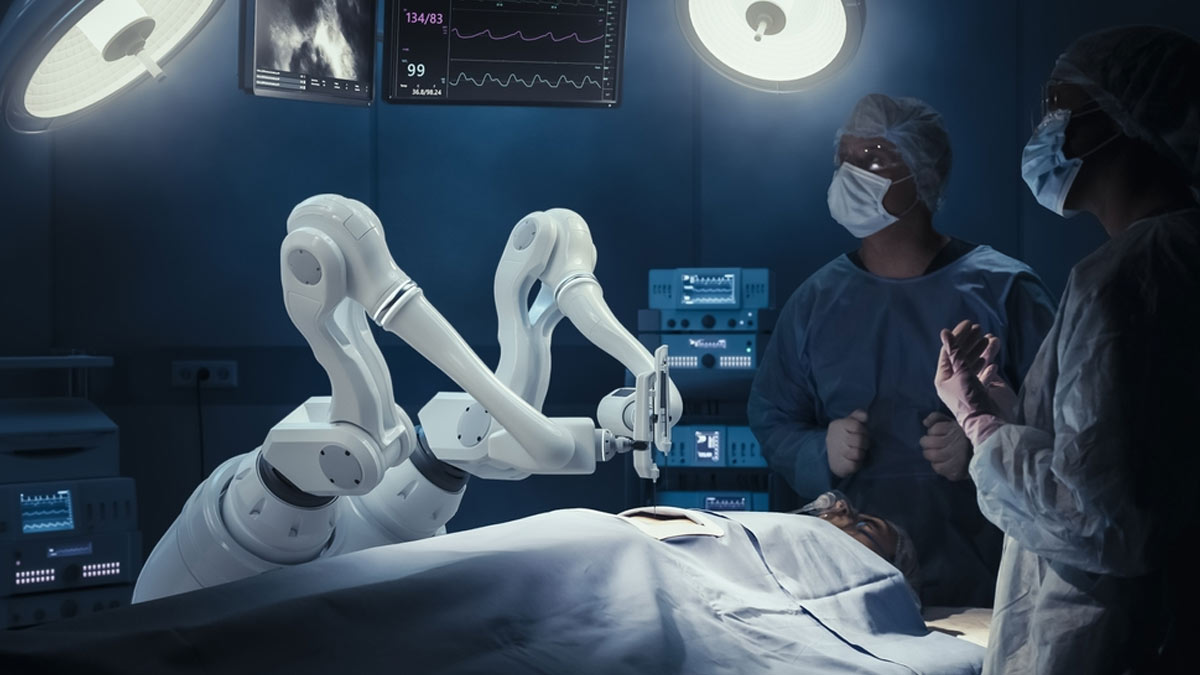
Facing a lung or oesophageal cancer diagnosis can be overwhelming, leaving many patients wondering what treatment options will truly make a difference. In such times, have you ever wished for a less invasive way to undergo surgery? Fortunately, robotic surgery is changing the game for many patients, offering a modern approach that makes the surgical experience smoother and more manageable. This innovative technique allows surgeons to perform complex procedures with greater precision and fewer complications. For patients, this means less pain, shorter hospital stays, and a quicker return to daily life.
Table of Content:-
We spoke to our expert Dr Tushar Pawar, Consultant- Abdominopelvic Surgical Oncology, HCG Cancer Centre, Borivali, Mumbai, who explained the advantages of robotic surgery in thoracic procedures for lung and oesophageal cancer.
Robotic Surgery: A Groundbreaking Advancement

“In recent years, robotic surgery has emerged as a groundbreaking advancement in the treatment of lung and oesophagal cancer. As a minimally invasive surgical technique, robotic-assisted surgery offers a range of benefits that enhance precision and reduce complications, thereby improving patient outcomes. For individuals facing the challenges of thoracic cancer, these advantages can be life-changing,” said Dr Pawar.
Enhanced Visualisation and Precision
Robotic surgery provides surgeons with enhanced visualisation, precision, and flexibility, crucial in thoracic procedures where the anatomy is complex and delicate.
"The da Vinci Surgical System, one of the most widely used robotic platforms, offers high-definition 3D imaging, allowing surgeons to see the affected area in greater detail than traditional methods," added Dr Pawar. This level of visualisation enables surgeons to identify and differentiate between cancerous and healthy tissues with better accuracy, minimising the risk of damaging vital structures like blood vessels, nerves, and healthy lung tissue. For patients, this means fewer complications and a greater likelihood of complete tumour removal, leading to improved survival rates.
Also Read: Robotics in Pancreatic Surgery: Expert Explains The Benefits And Its Advancements
Benefits of Lung Cancer Surgery

“In lung cancer cases, robotic surgery allows for procedures like lobectomy, segmentectomy, and even pneumonectomy to be performed through small incisions, unlike conventional open surgeries. With the precise control provided by robotic arms, surgeons can navigate the tight and complex spaces within the chest cavity, removing tumours with minimal disruption to surrounding tissues,” explained Dr Pawar.
This minimally invasive approach not only reduces blood loss during surgery but also minimises the risk of post-operative complications such as infections or prolonged recovery periods. Patients benefit from shorter hospital stays and quicker return to daily activities, greatly improving their quality of life.
According to the American Lung Association, the enhanced magnification and wristed instruments enable the surgeon to perform precise, controlled movements to remove lung tissue without needing larger incisions to open the chest or separate the ribs. These robotic tools are both accurate and highly manoeuvrable. Additionally, the camera provides the surgeon with a clear view of the chest during the procedure, allowing access to areas that may be challenging to reach.
Advantages in Oesophageal Cancer Treatment
Oesophageal cancer is another area where robotic surgery has proven particularly beneficial. Traditional esophagectomies often involve large incisions and a higher risk of complications, given the proximity of the oesophagus to critical structures like the lungs and heart.
"Robotic-assisted surgery, however, offers the precision necessary to perform oesophagectomies with minimal invasiveness. The ability to make smaller, more precise incisions results in less trauma to the body, reducing the likelihood of complications, such as infection, bleeding, and prolonged recovery time," highlighted Dr Pawar. Moreover, robotic surgery’s enhanced dexterity helps surgeons manage and dissect lymph nodes with greater accuracy, contributing to a more comprehensive cancer treatment approach.
Also Read: This Thyroid Surgery Leaves No Scar: Expert Explains Scarless Robotic Surgery For Thyroid Tumours
A Smoother Post-Operative Experience

Robotic surgery also plays a significant role in the post-operative phase, as it facilitates faster recovery times and a smoother healing process for patients. The minimally invasive nature of robotic thoracic procedures means that patients experience less pain post-surgery and require fewer pain medications, reducing the risk of opioid dependence and related complications. Additionally, smaller incisions lead to less scarring, making the recovery experience not only quicker but also cosmetically better for the patient.
Individualised Treatment Approach
"While robotic surgery is not suitable for every thoracic cancer case, it has shown remarkable success in selected patients. Factors, such as the stage of cancer, the patient’s overall health, and the size and location of the tumour are all considered before recommending this approach," said Dr Pawar. Surgeons work closely with oncologists, pulmonologists, and other specialists to determine the best course of action for each patient, ensuring that robotic surgery is utilised when it can provide the greatest benefit.
Bottomline
Dr Pawar concluded, "The advantages of robotic surgery in thoracic procedures for lung and oesophagal cancer are numerous. From enhanced visualisation and precision to quicker recovery times and reduced complications, robotic-assisted surgery offers a transformative option for many patients. By minimising the physical and emotional burdens of cancer surgery, robotic technology is setting new standards in thoracic cancer care, paving the way for improved survival rates and better quality of life."
[Disclaimer: This article contains information provided by an expert and is for informational purposes only. Hence, we advise you to consult your own professional if you are dealing with any health issues to avoid complications.]
Also watch this video
How we keep this article up to date:
We work with experts and keep a close eye on the latest in health and wellness. Whenever there is a new research or helpful information, we update our articles with accurate and useful advice.
Current Version